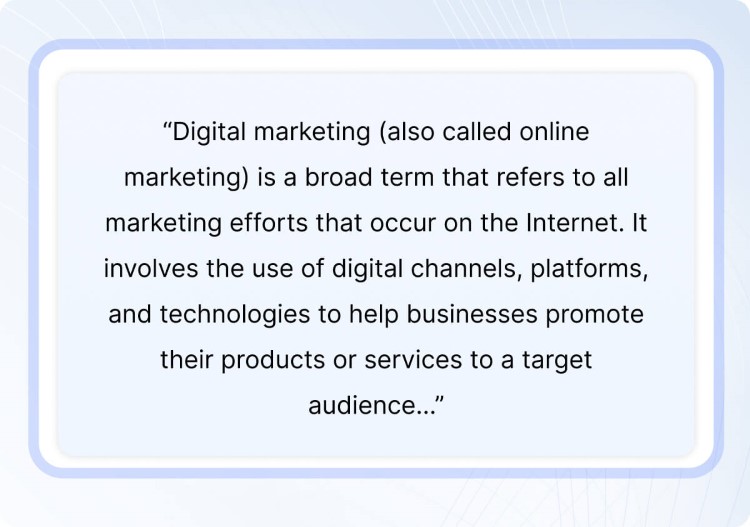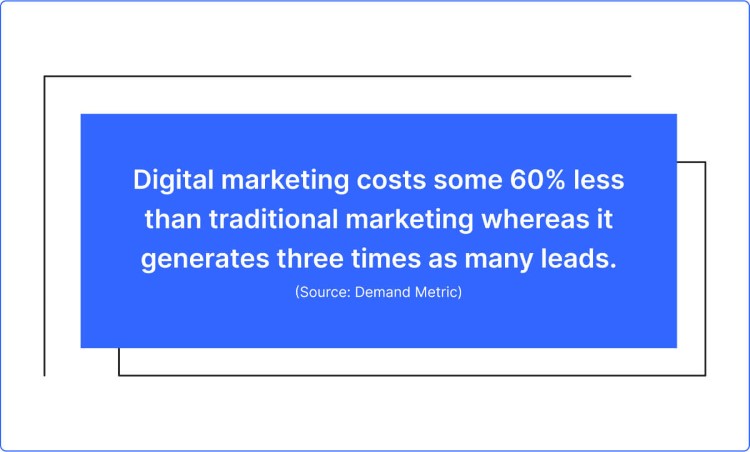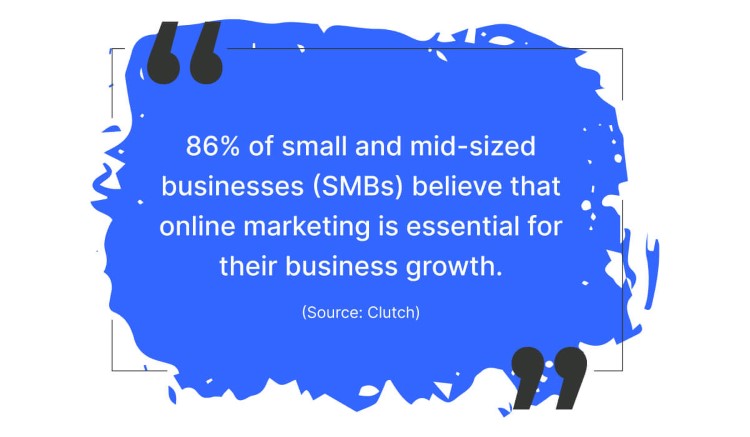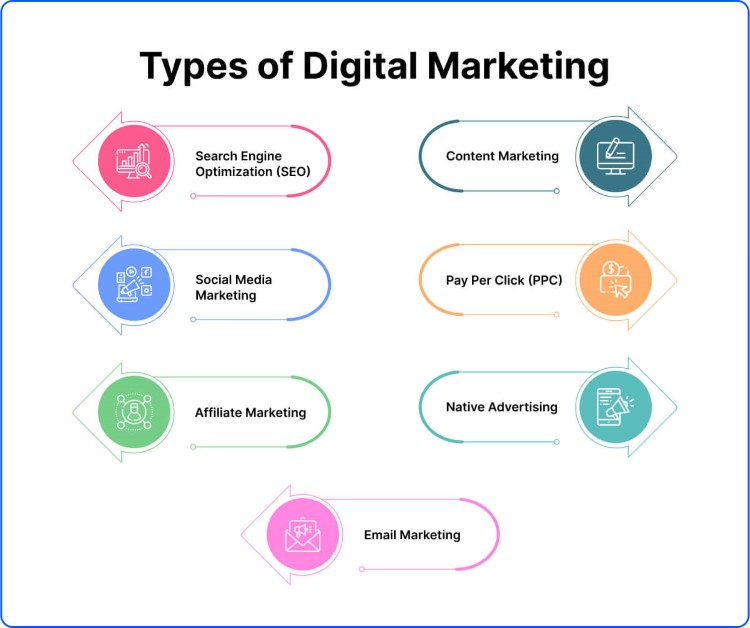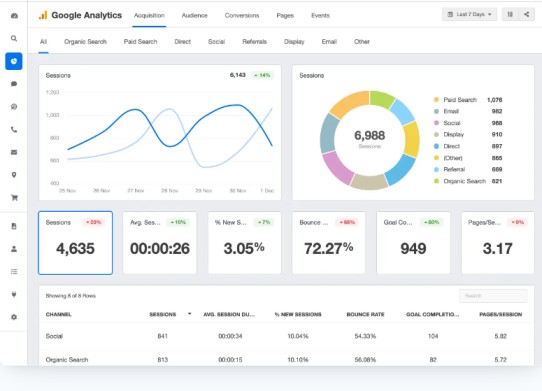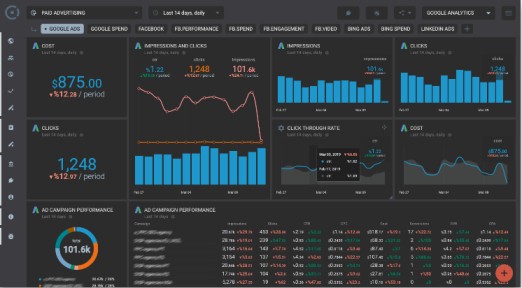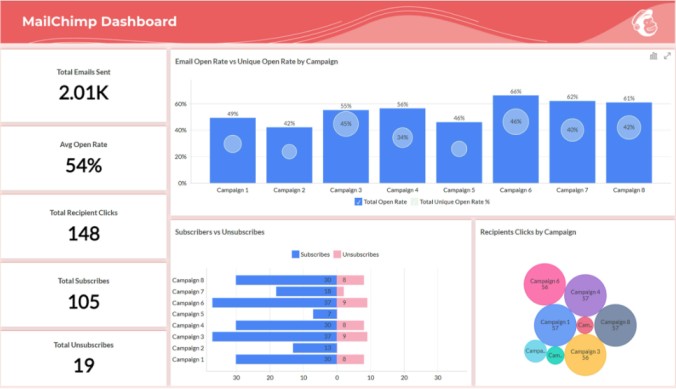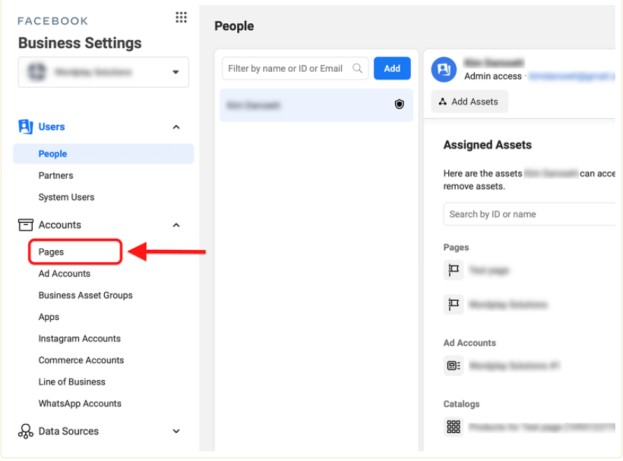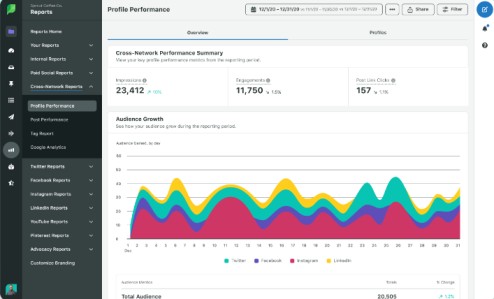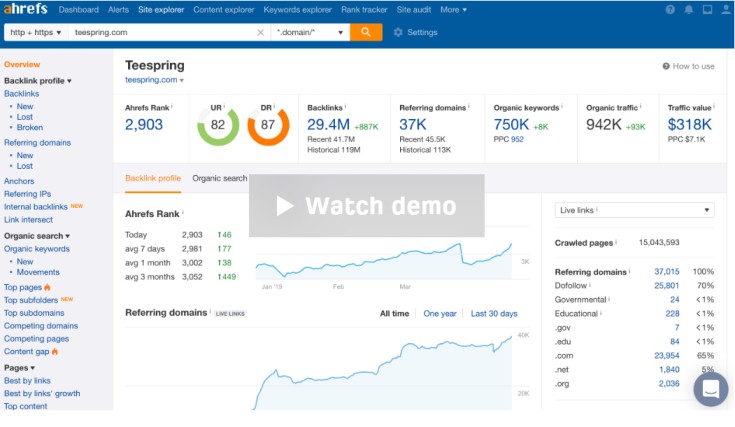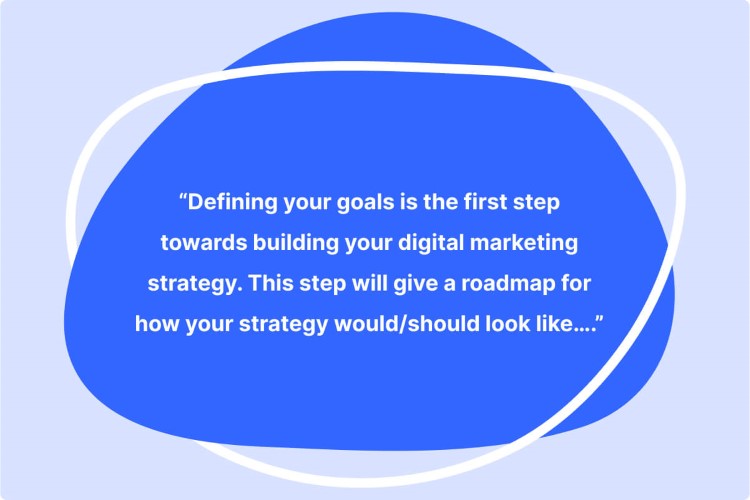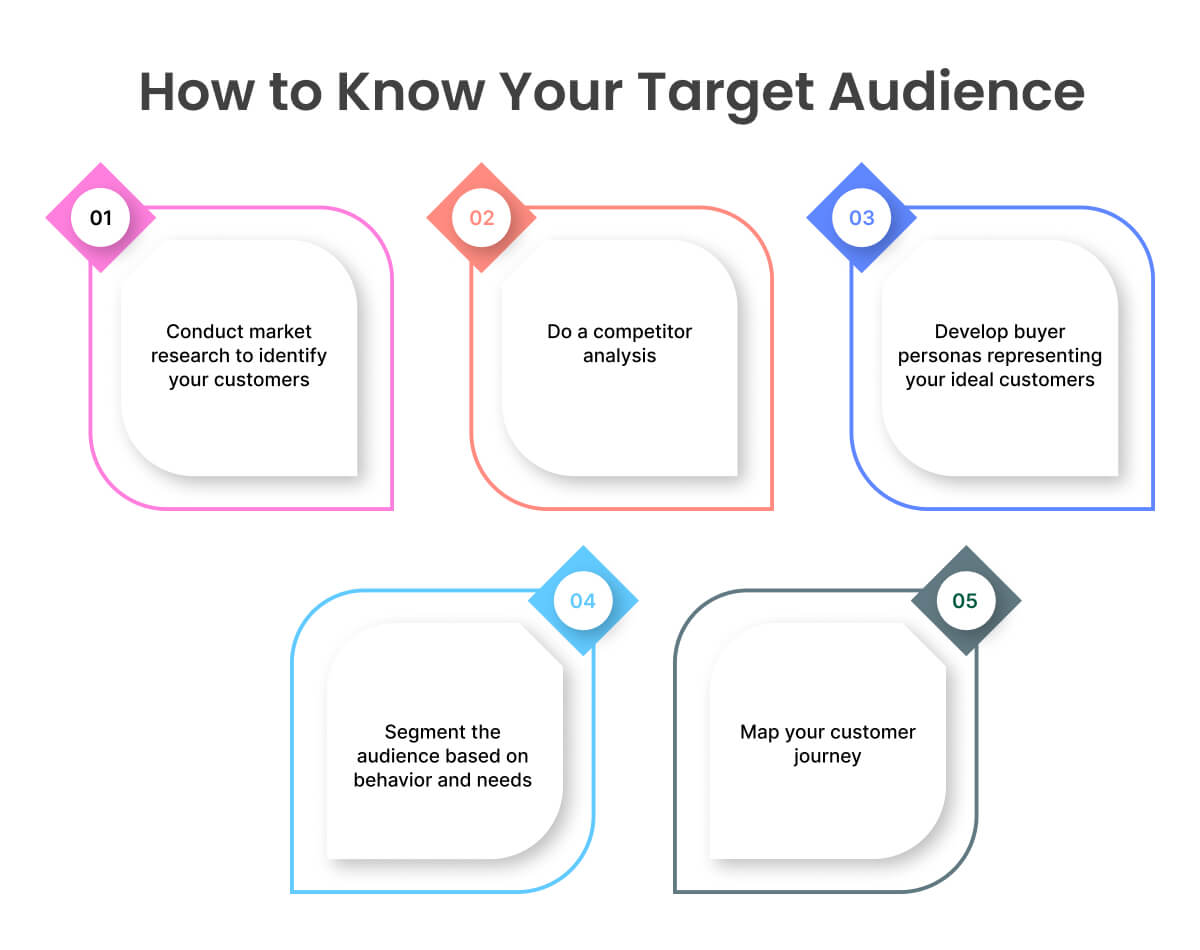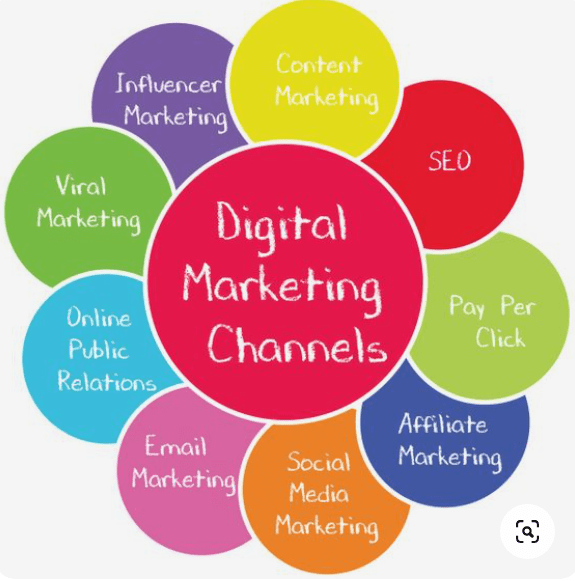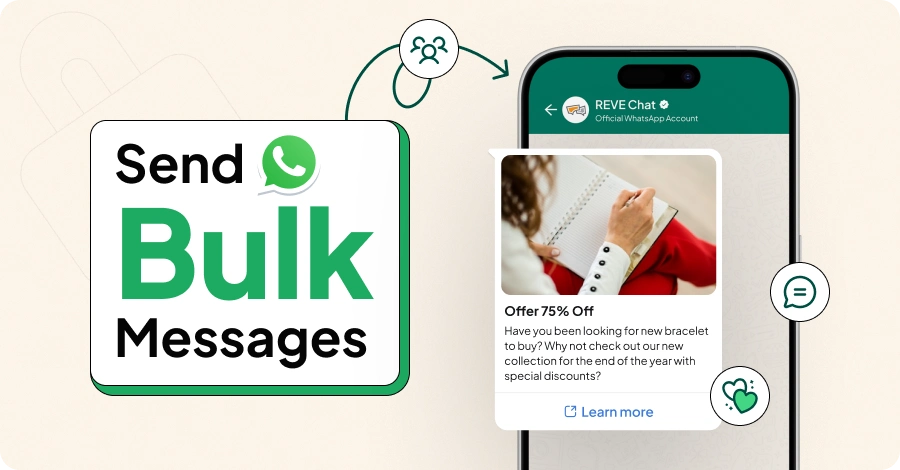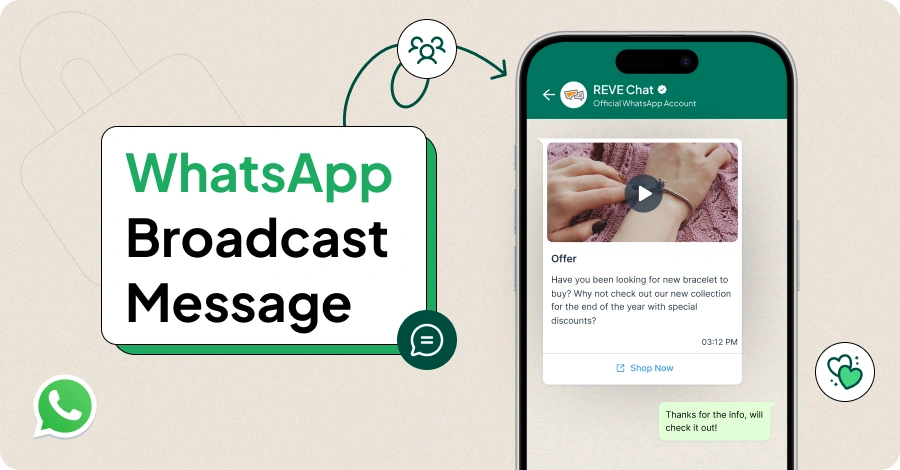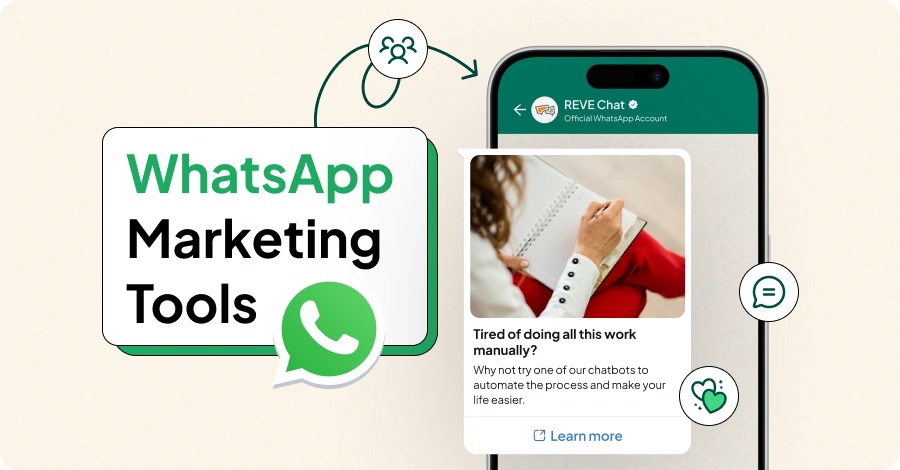Digital Marketing for Your Business – Types, Channels, Tools & Strategy
- August 1, 2023
- 19 mins read
- Listen

Table of Content
Traditional forms of marketing are costly. They are not suitable for everyone as not all businesses can afford to run ads on TV and radio. Most importantly, this kind of marketing is not in tune with a generation that is hooked to smartphones.
On the other hand, there are 5.18 billion online users worldwide, which is 64.6 percent of the global population. This number is even growing by the day.
Now when every 6 out of ten people are online, it is obvious for a business to reach its audience through digital channels. This is how digital marketing has evolved and grown into a major tool to market and promote brands.
More so, digital marketing helps brands in targeted and personalized advertising which is not possible with the conventional way of promotion. Plus, in recent years, there has been a big growth in digital channels such as social media, content marketing, etc. that ensured ease of engagement with the audience.
With tech advancements like AI and chatbots, it’s safe to say the landscape of digital marketing couldn’t be more beneficial for brands big and small alike.
In this blog, we will understand digital marketing in detail, and explore the types, tools, and services before moving on to discussing strategies.
But first, let’s get started with the definition of digital marketing…
What is Digital Marketing?
Digital marketing ( also called online marketing) is a broad term that refers to all marketing efforts that occur on the Internet. It involves the use of digital channels, platforms, and technologies to help businesses promote their products or services to a target audience. This form of marketing consists of various online marketing strategies and tactics to connect, engage and convert potential customers in the digital space.
The primary goal of digital marketing is to –
- Help businesses leverage the digital landscape and reach their target audience.
- Support organizations in their effort to boost brand awareness through the use of online tools and devices.
- Contribute to driving website traffic, generating leads, and eventually increasing sales and revenue.
- Enabling an alternative way to traditional marketing and ensuring a cost-effective way to tap into the potential audience.
Digital Marketing Meaning for Your Business
For your business, the meaning of digital marketing is to use the internet and promote your products and services to a target audience. It also means using all things digital, including channels, tools, and platforms, to reach your potential customers and convert them into loyal customers. Sometimes digital marketing also means you need to meet customer needs and ensure great experiences for them.
The meaning of digital marketing is to –
- Leverage the power of the internet for marketing and brand promotion.
- Utilize online marketing tactics to deliver relevant messages to your target audience.
- Compete in the digital landscape without spending huge budgets.
- Target the precise audience and improve ROI on the marketing budget.
Why is Digital Marketing Important?
With the digital sphere becoming increasingly pervasive, businesses worldwide are recognizing the indispensable role digital marketing plays in their success. It has changed the way businesses connect with their audience. It has literary transformed how Brands achieve their marketing goals. From being cost effective to offering miserable results, and helping create personalized experiences, this form of marketing has given so many reasons that now make it a key part of modern day marketing.
Digital marketing trends encompass a wide array of strategies and techniques aimed at enhancing online visibility, engaging target audiences, and ultimately driving conversions. From search engine optimization (SEO) to social media marketing, email campaigns, and beyond, these trends epitomize the dynamic nature of the digital landscape.
Here are some major reasons that show why digital marketing is important for businesses across industry verticals –
- Accessibility to a larger market – Thanks to digital marketing, businesses can think of going beyond their physical location and market their brands to a global audience.
- Budget-friendly approach to marketing – There was a time when small businesses could not compete with big enterprises but digital marketing has bridged that gap considerably. It has proved a more cost-effective alternative to the traditional way of marketing, giving brands an opportunity to reach a larger audience in a budget-friendly manner.
- Targeted marketing – By using digital marketing, a business can reach its audience based on specific demographics, motivations, interests, buying behavior, and search history. This enables display ad targeting and makes engagement more effective, which ultimately boosts the chances of conversion
- Measurability – Digital marketing makes it easy to track and measure the performance of ad campaigns in real time, resulting in accurate analysis, deep insights, and optimization. With measurable results, a business can make data-based decisions and improve ROI on marketing efforts.
- Personalized engagement – The kind of customer data digital marketing enables helps a lot in personalizing marketing messages and creating more meaningful connections with the audience. This not only boosts the overall customer experience but also contributes to long-term relationships with customers.
- Thought leadership – Due to a consistent online presence, a business not only boosts its visibility but also establishes itself as a thought leader in the industry. With 24×7 visibility minus any geographical barrier, a business can engage with customers in real-time, and cater to their needs and all this can boost brand loyalty.
- Opportunity to refine marketing strategies – When a business uses digital channels for marketing, it gets access to valuable data and insights about customers, including behavior, tastes, and preferences. This kind of information can prove very helpful to not only adjust marketing strategies but also improve products and services.
Who Needs Digital Marketing Services?
Digital marketing services have become integral to any enterprise, individual, or professional looking to enhance their online presence. These services are key to reaching the target audience and achieving your marketing goals through the digital landscape and tactics.
Here is a list of audiences that need digital marketing services –
- Small and mid-sized businesses (SMBs) often lack the resources and expertise to challenge the might of big enterprises but they can leverage the power of digital marketing services to attract new customers and compete in the digital landscape.
- Big corporations also need digital marketing services to engage with their target audience on the web and keep them informed about their product or service campaigns.
- Startups need the support of digital platforms to create brand awareness and generate leads to support their business ambition.
- Online shops and e-commerce store needs online marketing to optimize their product listings, take their offers to the audience, and boost sales.
- B2B firms can utilize the power of online marketing to generate leads, nurture prospects, and close deals.
Apart from them, digital marketing services are also vital for NGOs, educational institutions, healthcare professionals, event organizers, and real estate players. Individuals who run blogs or create content or engage in affiliate marketing activities also need digital marketing services to realize their marketing goals.
Types of Digital Marketing
Digital marketing consists of various types of tactics and channels to promote products, services, and brands. Each type of approach will depend on the specific goals of a business and the specific target audience it aims to cater to. It’s also possible to combine two or many types together to achieve the desired results.
Let’s look at each of the major types of digital marketing –
- Search Engine Optimization (SEO) – It involves the optimization of websites, web pages, and content for achieving higher ranks in search engines like Google. As a set of practices, SEO can help improve the visibility and positioning of content in organic search results. By implementing effective SEO strategies, a business can become more visible online and attract more organic traffic, resulting in more possibility of customer acquisition and business growth. After all, 68% of online experiences begin with a search engine.
- Content Marketing – It’s a marketing approach that focuses on creating and distributing relevant, relatable, and quality content to engage and attract the target audience. Using content marketing, a business can provide useful information to users, educate the audience and address the needs of potential customers, resulting in trust and credibility with the audience. In this type of marketing, the emphasis is more on adding value to the audience rather than promoting products or services.
- Social Media Marketing – This type of digital marketing involves the use of social media platforms to engage with the target audience and promote products or services. Businesses can leverage the power of social channels like Facebook, Twitter, Instagram, YouTube, and LinkedIn to build brand awareness and drive business growth. With millions of people using social media, businesses get an opportunity to leverage the platforms, interact with their audience in real time and boost the conversion rate.
- Pay Per Click (PPC) – It’s a type of digital marketing where visits are bought to a website rather than earned organically. In this mode, marketers need to pay a fee each time someone clicks on their ad. PPC can be used in any channel and websites that offer ad space, including search engines, and social channels. Immediate and measurable results and a targeted audience are the USP of pay per click model.
- Affiliate Marketing – It’s a performance-based digital marketing strategy where a business rewards affiliates for driving leads and sales. This form of marketing is beneficial for both the involved parties – while companies can leverage the marketing efforts of others, affiliates can earn passive money by promoting products or services of any business that aligns with their niche.
- Native Advertising – This form of digital advertising matches the form and function of the platform it appears and it’s done to deliver a non-intrusive experience to users. Native ads will gel in with the surrounding content on the platform and appear like natural content. They are integrated with the overall layout and design of a platform to make them appear less obstructive and more organic.
- Email Marketing – This type of online marketing involves sending emails to potential or existing customers for engagement and promotion of the brand, products, or services. Email allows businesses to deliver personalized messages to the target audience and communicate directly with them. Email marketing provides a high ROI and also enables automation.
Popular Digital Marketing Tools
Digital marketing tools have become vital for businesses looking to expand their digital footprints across channels. They have tons of useful features for doing most of the tasks involved with online marketing, from engaging with customers to winning over leads, managing relationships to converting leads.
Here are some of the best digital marketing tools for your business –
1. Google Analytics
This free web analytics tool from Google is very powerful and helps in tracking and analyzing key metrics including website traffic and user behavior. Using this tool, a business can gain deep insights into how users interact with a website and therefore boost their marketing efforts.
Key Features
- Website Traffic Analysis
- Audience Demographics
- User Behavior Analysis
- E-commerce Tracking
- Real-Time Analytics
2. Google Ads
Developed by Google and formerly called Google AdWords, this digital marketing tool is very effective for creating and managing PPC ads on any scale. By using this tool, a business can leverage Google’s search engine and display network to reach the target audience quickly and promote their offers.
Key Features
- Keyword-driven advertising
- Support to various ad formats
- Targeting options
- Budget-managed advertising
- Conversion tracking
- Campaign performance reporting
3. Mailchimp
This tool is primarily for email marketing but can also help with customer engagement and relationship management. By using this marketing platform, a business can create, run and manage email campaigns and automate the marketing process. There are no better tools in the market than Mailchimp when it comes to growing and engaging the audience through email marketing.
Key Features
- Drag-and-drop email builder
- Support to various email formats
- Automated email sequence set-up
- Email list segmentation
- A/B Testing
- Land page customization
- Reporting and analytics
4. Facebook Business Manager
This powerful tool by Facebook is very helpful for managing and organizing all your Facebook and Instagram assets in one centralized platform. By using this tool, your business can manage all their social pages, ad accounts, and team members linked with both channels, resulting in effective marketing campaigns.
Key Features
- Multiple pages and accounts management from a single dashboard
- Ad Account Management
- Access Control & Asset Sharing with teams
- Creating and management of customer audiences for ad targeting
- Reporting and Insights
- Integration with Third-Party Tools
5. Sprout Social
Sprout Social is the ultimate social media management platform for organizing content calendars and assets in one place. From publishing to scheduling content across multiple platforms, it allows all activities in tune with the best time when your audience is most active. From collaborating with customers and clients to identifying your top-performing posts, it enables all and more and ensures a complete social management platform for your business.
Key Features
- Social Media Scheduling & Monitoring
- Social Media Analytics & Reporting
- Social Media Listening & Collaboration
- CRM Integration
- Competitor Analysis
6. Ahrefs
Ahrefs is one of the most comprehensive SEO tools that marketers and webmasters use across the world. It offers valuable insights and data for improving search engine rankings and organic visibility. From conducting research to auditing websites, tracking rankings to formulating SEO strategies, this toolkit enables all this and more.
Key Features
- Site Explorer
- Backlink Profile Analysis of Websites and Competitors
- Keyword Research
- Content Explorer
- Rank Tracking For Websites and Specific Keywords
- Extensive Site Audit
- Competitor Analysis
- Content Gap Analysis
Tips to Create an Effective Digital Marketing Strategy for Your Business
An effective digital marketing strategy is important for creating brand awareness, enhancing engagement, and driving sales. However, your business first needs to understand its needs and objectives before moving ahead with devising a robust strategy in the digital landscape.
Here is a step-by-step guide to creating a digital marketing strategy for your business –
1. Define Your Goals
Defining your goals is the first step toward building your digital marketing strategy. This step will give a roadmap for how your strategy would/should look like. When your goals are defined, you can allocate resources judiciously, focus more on your efforts, and track the progress of each step involved in your entire customer lifecycle.
Key Features
- Defining your goals means you need to identify your business objectives where you need to know the targets you want to achieve.
- Be sure beforehand whether you want the digital marketing strategy to increase sales, improve brand awareness or expand the customer base.
- Once you have set business objectives, you can then define measurable and specific marketing goals.
- Understand how those marketing goals will align with the various stages of the marketing funnel.
- Set a timeline for those goals and then identify the KPIs for each goal.
2. Know Your Target Audience
Understanding your target audience is the next step in devising a digital marketing strategy for your business. This step will help in creating relevant and engaging marketing campaigns that work well with your audience. When you don’t know your target audience, how can your marketing efforts target the right people? An in-depth knowledge of the target audience proves beneficial in not only creating personalized campaigns but also in connecting with the audience on a deeper level, resulting in higher engagement and better conversion rates.
Key Features
- Conduct market research to identify your customers, their behavior, and market trends.
- Do a competitor analysis to see what marketing strategies others are using in targeting the same set of audiences.
- Once the market research is done, you can leverage the data and develop buyer personas representing your ideal customers.
- Next, you need to segment the audience based on behavior, needs, and common characteristics so that you tailor your marketing messages for each specific group.
- After segmenting the audience, you need to do a customer journey mapping to analyze the various interactions and gaps in the touchpoints. This will help in addressing the needs of your customers at each stage.
- By now, you will have identified customer needs and pain points with good knowledge of how to offer relevant solutions and position your brand.
3. Analyze Your Current Digital Presence
Have you ever bothered to check how your existing digital marketing strategies are faring? Chances are you have not identified the strengths and weaknesses in your existing marketing strategies and assets.
Worry not as this is something you can do anytime, but it’d be better if you did it before devising a digital marketing strategy for your business. Then, it can serve as a starting point for formulating a more effective strategy for digital transformation.
Once you have analyzed your current digital presence, you will be aware of the gaps and shortcomings and ensure a well-rounded approach to digital marketing.
Key Features
- Conduct a comprehensive audit of your website with an in-depth analysis of the design, navigation, UX, load speed, and mobile responsiveness.
- Check and assess the quality and relevance of the content that you use on your website or across channels.
- Analyze the SEO performance of your website, see how your focus keywords are doing, assess the backlink quality, and find ways to boost organic visibility.
- Review your social media strategy and check the effectiveness of your campaigns.
- See how your email marketing efforts are doing and analyze your paid ads performance against key metrics such as CTR, and conversion rates.
- Compare your existing digital presence with your competitors as this will give you a good idea of where you are lagging behind.
4. Choose Your Digital Marketing Channels
An effective digital marketing strategy can never be created unless you have chosen the right channels to reach and engage your target audience. The marketing channel you choose should align with your goals, your target audience preferences, and industry trends. After all, it’s vital to be where your audience is most active. Once you know the channel your target audience prefers and uses the most, you can engage them better and also optimize the impact of your strategies.
Key Features
- Analyze the online behavior of your target audience and understand the platforms or channels they frequently use.
- See whether your audience is active on social media or whether they prefer finding you on search engines.
- Select the channel/s that suit/s your digital marketing goals perfectly. Also, consider your industry and niche to get a good understanding of the channels that might suit your cause.
- Once you have zeroed in on the right channel, you can then create and run campaigns to reach and target your audience effectively.
5. Create a Robust Content Plan
Much of the success of your digital marketing strategy will hinge on your content plan. Content factors like what types you will produce, the topics you will cover, the channels you will choose, and the schedule you use, all will have a huge bearing on the success of your digital marketing strategy.
Key Features
- Understand your audience and their pain points, preferences, and needs before creating content.
- Identify the goals you want to achieve with the content – whether you want to educate, generate leads, build brand awareness, or drive sales.
- Choose the content types that fit well into your goals and then choose topics and keywords for whether you want to create blog posts, videos, case studies, podcasts, webinars, etc.
- Decide the distribution channel for your channel and then create a proper calendar to decide how frequently you want to publish content.
- Prepare an optimization plan for your content and then you can plan a proper content promotion strategy.
- In the end, set metrics to measure and track the performance of your content.
6. Implement Marketing Automation
Implementing automation in your digital marketing strategy can bring benefits in many ways and on many levels. First, it will help streamline your entire marketing process and save time. With automation, you can deliver personalized experiences more often and engage with the audience at the right time with the right content.
Key Features
- Determine your marketing automation goals and then choose the right automation platforms that suit your needs and budget perfectly.
- Ensure that the marketing automation tool you choose integrates with your website, CRM, and other marketing tools for streamlining workflows and managing data more efficiently.
- Tailor your marketing automation campaigns based on the data collected from using lead capture forms on your website.
- You can build automated email workflows and deliver relevant content at each stage of the customer journey.
- You can set up conditions and triggers within your automation platform to automate actions in tune with the user behavior.
7. Measure and Analyze
The last stage of your digital marketing strategy is to measure and analyze the performance of all your steps. It will help you understand how effective it has been and will help you know the areas for improvement. When you measure and analyze, it will give tons of data, and you can thus update your performance metrics and reporting as your strategy evolves over time. You can also fine-time your marketing efforts and achieve better results.
Support Your Digital Marketing Efforts with REVE Chat
Engagement is at the core of a successful digital marketing strategy. The more your business is able to engage better with the audience, the more its efforts will be rewarded in the long run.
We, at REVE Chat, are aware of how engagement could transform your brand’s digital marketing footprints. So, we bring you some powerful customer engagement tools to reach your audience and connect with them.
Our AI-powered chatbots can help your business automate various tasks across marketing, sales, and support. We have video chat software and co-browsing software for visual engagement.
Your business can also use our live chat software in combination with the chatbot to offer hybrid support to customers and increase the rate of engagement.
Final Thoughts
Your digital marketing efforts need the support of the right tools and technologies to help grow your business. The key is to leverage the latest trends in tech and empower your business like never before.
With REVE Chat, your business will find the support of quality engagement tools.
So, you can sign up here and check how our tools can help your business engage better with your target audience and contribute to the success of your digital marketing efforts.

